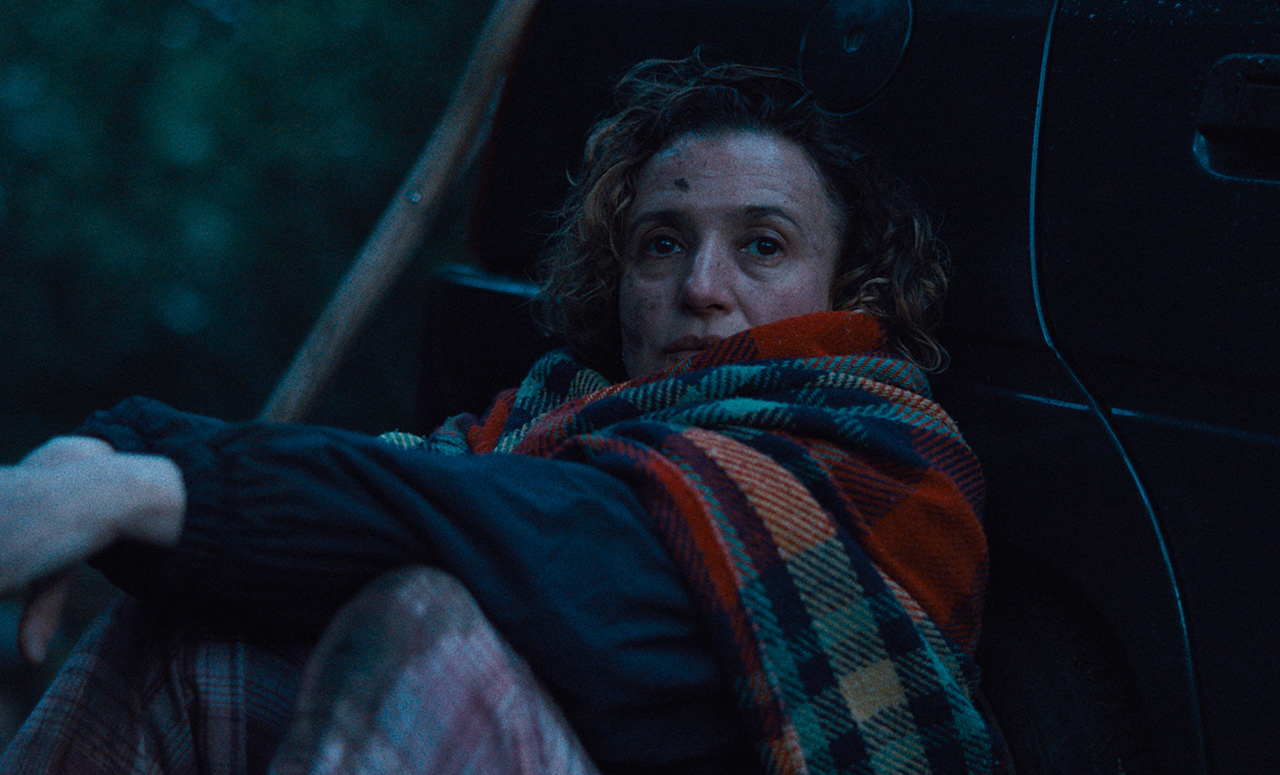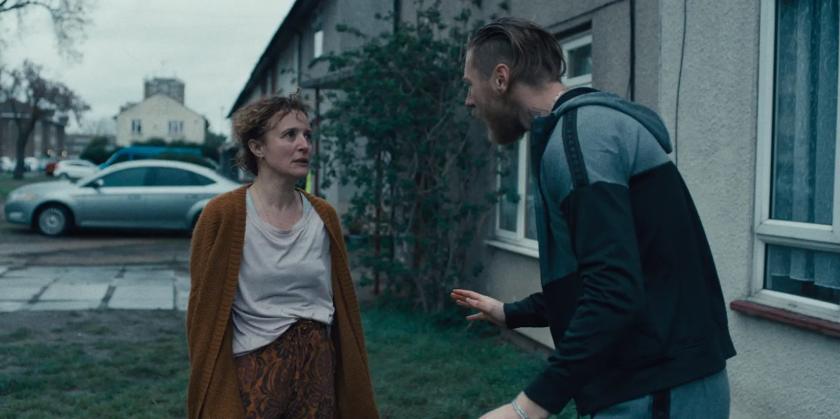Horror comes in many forms. In writer-director Jed Hart’s feature debut Restless, it’s visited on middle-aged nurse Nicky (Lyndsey Marshal) by thirtyish Deano (Aston McAuley), the superficially affable toxic male who moves in next door with two mates and holds raves in their living room, “all night and every night”.
A single mother whose son has just left for university, Nicky is pressed by her boss to work extra shifts at the understaffed care home for the elderly that employs her. In her downtime, she does yoga, watches snooker on TV, listens to classical music, and bakes cakes for herself. She talks to her sister on the phone, but has no friends.
The accelerating feud with Deano is exactly what Nicky needs to liberate herself from her social hibernation. It brings her into the orbit of another lonely singleton, likeably awkward traffic controller and bouncy castle owner Kevin (a lovely comic turn by Barry Ward). But Kevin’s attempt to get macho with Deano fails resoundingly.
Nicky’s sleep deprivation results in a meltdown and forces her to act. Watching this good-natured woman resort to a series of vigilante crimes is the psychological comedy-drama’s chief pleasure. The opening sequence, filmed by Hart like a bravura mini-neo-noir, is a flash-forward, afforded by the movie’s envelope structure, to a murder Nicky might or might have not committed. Who doesn’t entertain violent thoughts when the neighbours are still banging away at 4am? (Pictured below: Lyndsey Marshal)
 Restless unfolds mostly on the scruffy English council estate where Nicky’s pebble-dash house adjoins the one formerly occupied by her recently deceased parents. That Nicky has kept the front-door key they gave her enables her to trespass when Deano and his mates are out for the purposes of sabotaging his sound system, a forgivable plot contrivance. One less forgivable is the illegal aspect of Deano’s sybaritism that Nicky seizes on toward the film’s end, disappointingly supplying it with a deus ex machina.
Restless unfolds mostly on the scruffy English council estate where Nicky’s pebble-dash house adjoins the one formerly occupied by her recently deceased parents. That Nicky has kept the front-door key they gave her enables her to trespass when Deano and his mates are out for the purposes of sabotaging his sound system, a forgivable plot contrivance. One less forgivable is the illegal aspect of Deano’s sybaritism that Nicky seizes on toward the film’s end, disappointingly supplying it with a deus ex machina.
Restless recalls Grown Ups (1980), Mike Leigh’s TV drama of warring council estate neighbours, though one suspects Hart will want to move beyond social realism. He demonstrates flair as a visual storyteller, eschewing dialogue in long, atmospheric sequences (including the opener) that propel the narrative.
The film also has an impeccable sound design and artfully juxtaposes canonical classical and opera with Deano’s favoured house and techno. (I did wonder if we’d hear Massive Attack’s version of “Man Next Door”, as sung by Horace Andy, but it would’ve been too obvious a touchstone.)
Best of all, Hart provided the means for Marshal to excel as the kind of ordinary, put-upon woman, neglected by the majority of films, who’s forced to become her own heroine.













Add comment